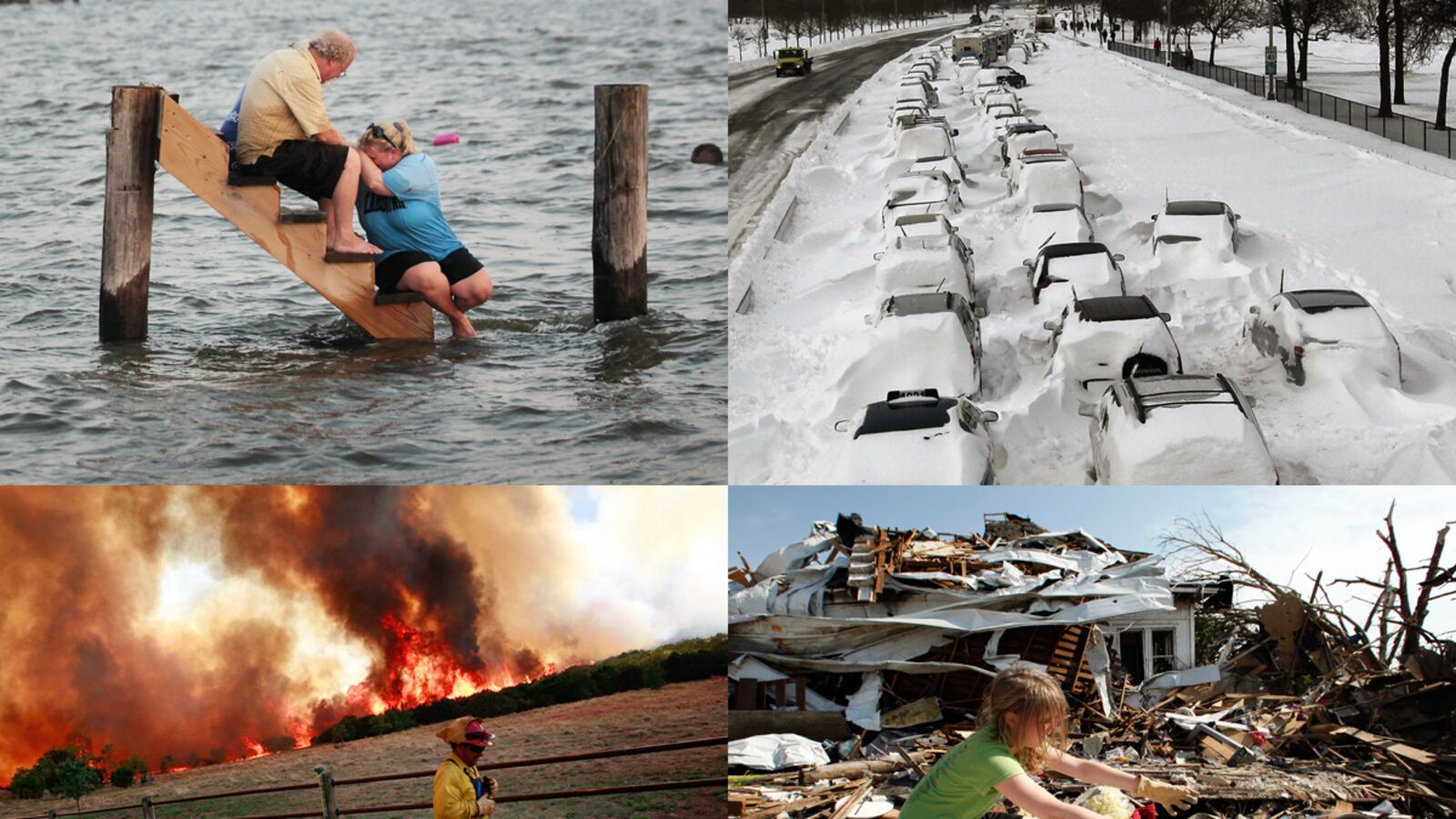Mother Nature has plans to stir up more trouble over this Labor Day weekend. Hurricane Katia continues to churn across the Atlantic while something that looks suspiciously like a nascent tropical storm brews off the coast of Cuba. That’s just the latest in a summer full of extreme weather: Domes of heat across the central and eastern U.S.; Dust Bowl-like levels of drought in the Central Plains; flooding and beach erosion caused by Hurricane Irene along the East Coast. And we haven’t even hit the peak of hurricane season yet—Sept. 10.
And just who pays for all these disasters? That’s a question being asked in Congress right now. House Majority Leader Eric Cantor, the No. 2 House Republican, said earlier this week that additional disaster funding has to be offset by spending cuts—a suggestion that thrusts emergency funds into the middle of highly partisan budget disputes.
Even before Hurricane Irene tore up the East Coast and devastated parts of interior New England, FEMA’s disaster relief fund was at a low of $792 million. Whenever the fund drops below $1 billion, FEMA is forced to prioritize its relief efforts and make very difficult choices. Because of this “immediate-needs status,” long-term projects like rebuilding roads, bridges, and schools are put on hold to deal with the needs of Hurricane Irene’s victims. In fact, the Associated Press reports that some federal money pledged to tornado-ravaged Joplin, Mo., and other disaster sites is being diverted to help victims of Hurricane Irene.

How to pay is just one of the many difficult discussions about extreme weather we face. And like most hard conversations, this is one that will only get harder the longer we wait. Climate scientists have warned that as the planet warms, extreme events will increase in frequency and severity. The physics are quite straightforward. All weather is under the influence of climate change now because all weather is being born into a warmer, moister environment. Thanks in part to warmer oceans, water vapor in the atmosphere has already increased about 4 percent and it will continue to increase as the planet warms—providing more fuel for storms. Events like droughts, wildfires, heat waves, and heavy downpours are going to become more frequent, more intense, and last longer. In fact, we can already see this playing out in historical data.
And while weather coverage has dominated the headlines all year, these climate facts are rarely mentioned. Given how high the stakes are, it’s critical that weather events be placed in their full climate context right along with society’s increasing vulnerability to extreme weather events due to population growth and coastal development among other factors.

Our weather is getting worse, and not saying it won’t make it go away. According to Munich Reinsurance America, one of the top providers of property and casualty reinsurance in the U.S., the number of natural disasters has tripled over the past 20 years. Average thunderstorm losses have increased five-fold since 1980. For the first half of 2011 there have been $20 billion in thunderstorm losses, up from the previous three-year average of $10 billion. The reinsurance company has also gone on the record saying, “It would seem that the only plausible explanation for the rise in weather-related catastrophes is climate change.”
Preliminary estimates place the total damage on property and the economy for all weather-related disasters this past year at more than $35 billion. With four months left in the year, we’ve already set a record for the most billion-dollar weather disasters, breaking the old record of nine that occurred in 2008.






